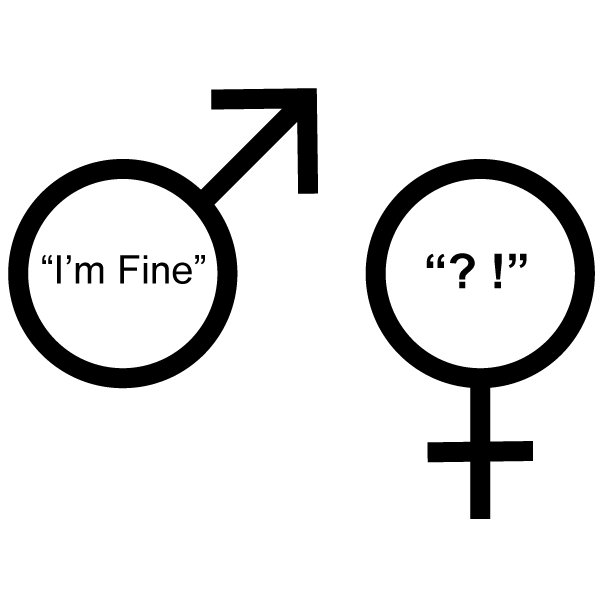Therapy for Men in NYC
It’s all about fit!
Emotional Intimacy
Does your partner complain that you’re distant and don’t express your feelings? Do you feel more like roommates than lovers? If so, there’s probably a lack of emotional intimacy in your relationship. Emotional intimacy refers to a sense that you and your partner know each other’s inner thoughts and feelings and truly accept one another. Emotional intimacy is built across time, as partners share more and more of their deepest secrets, feelings, hopes, dreams, and fears. It relies heavily on trust and communication about emotions. A healthy relationship can be an amazing source of joy and support, whereas an unhealthy relationship can be just the opposite and among the most distressing experiences in life.
Traditional Masculinity
Some boys learn it’s unmanly to be in touch with and express their emotions, while also learning that expressions of anger and aggression are acceptable. They carry these beliefs and behaviors forward into adulthood. In traditional masculinity, less emphasis is placed on social connection and more is placed on power and social status. Through this lens, it’s manly to be a strong self-sufficient problem solver who doesn’t whine about physical or emotional pain. The image of the warrior or athlete pressing on despite injury comes to mind. Men learn it’s weak to ask for help and that they shouldn’t experience or talk about their feelings. Especially softer feelings like grief, sadness, and fear.

Changing Times
We live in a time of cultural change, in which traditional gender role stereotypes have less of a place. Nonetheless, many men and women are still influenced by them. Men today are expected to be more emotionally available and connected in relationships than in the past. Yet many men still hold internalized beliefs that they should be strong providers who keep a tight rein on their emotions. Avoiding emotions can lead to inappropriate expressions of anger down the road. It also interferes with emotional intimacy and relationships. Men who repress their emotions sometimes turn to unhealthy ways of managing unpleasant feelings, like eating and drinking too much, or distracting themselves in other ways. All of this leads to a snowballing effect with increases in mental and physical health issues and problems in close relationships.
Rates of Disorder and Symptoms
Men experience the same mental health conditions as women, but the prevalence rates seem to vary by gender across conditions. Rates of depression seem to be higher for women, but rates of substance use disorders and other addictive disorders appear to be higher for men. The mental health symptoms men and women experience have more in common than differences; however, men may manifest their emotional suffering somewhat differently than women. Men externalize more and manage their emotions through maladaptive coping, such as substance use, excessive work, and other unhealthy behaviors. Although men and women experience the same symptoms of depression and anxiety, men are less likely to talk about their symptoms or seek treatment. When they do, they often present as stressed, irritable, and demoralized, rather than sad and anxious. Rates of suicide are more than three times higher for men than women. The reasons for this are complex, including the fact that men use more lethal means in their attempts, but this statistic highlights the fact that more men are suffering than is reflected in the rates of treatment seeking by men. If you’re a man experiencing stress, anger, anxiety, or depression, and reluctant to start therapy, you’re not alone. Research indicates that men who conform to traditional masculinity are less likely to seek therapy.
Clinical Presentation
Men are more likely to mask their emotions and externalize them in the form of high risk and physically unhealthy behaviors, such as substance use, over eating, sex addiction, gambling, etc. For many men, repressing softer emotions, like grief and sadness, leads to later expressions of anger, which seem inappropriate to close others. Men may deal with anxiety and depression by isolating and shutting down, and this leads to problems in their close relationships. Men are less likely to identify depression and anxiety as conditions that require treatment. Rather, they attribute their symptoms to problems in their lives. They don’t see how therapy can help because they view their problems as external and through this lens, their emotional distress makes sense and will not abate until the external situation changes.
Toxic Cycles
While life problems contribute to depression, the association between depression and life problems is complex and reciprocal. It’s not simply that life problems cause anxiety and depression. Reality is more complex than that. In reality, poorly managed emotions lead to more life problems, which lead to more negative emotions and so on. For many men, the real root of the problem is in the mismanagement of emotions. Problems experiencing, labeling, and communicating emotions can lead to less emotional intimacy and problems in close relationships. This creates a significant source of stress which can feed a vicious cycle or snowballing effect. Men are often less socially connected and rely more heavily on their partners for emotional support than women. Men may become very isolated as untreated emotional issues interfere with their relationships.
Therapy for Men NYC
Men experience the same mental health conditions as women, but they manifest their suffering differently. Traditional masculinity presents challenges to men’s health because it devalues emotional awareness, communication, and emotional intimacy. This leaves men vulnerable to relationship problems and being less socially connected. Traditional masculinity is also associated with a lower likelihood of seeking mental health treatment, which can lead to snowballing problems with mental health and close relationships. But it doesn’t have to be that way. Dr. Williams has two decades of experience working with men and engaging them in treatment. Dr. Williams can help men increase their emotional awareness and improve their emotional intimacy in close relationships. He provides the skills and concepts men need to manage life and relationships in today’s world.
